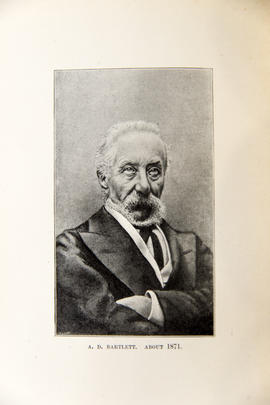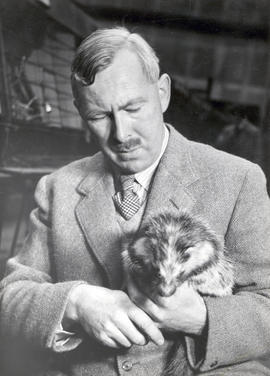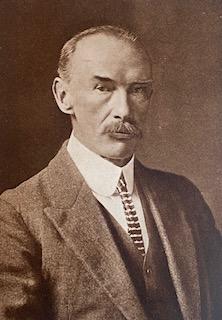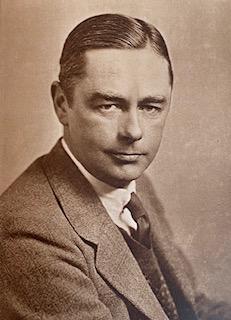Abraham Dee Bartlett was the second son of John Bartlett and Jane Dunster. He was interested in animals as a child and his father's friend was Edward Cross, owner of the menagerie Exeter Exchange. He had a taxidermy business near the British Museum. Dead birds were sent to him for taxidermic preservation, and for his exhibits he received a gold medal at the Great Exhibition of 1851. He was among the first to reconstruct a specimen of the dodo, and this was displayed at Sydenham Crystal Palace, where he was appointed naturalist in 1852.
He associated himself with the Zoological Society of London and was offered the position of superintendent made vacant by the death of John Thompson at the garden in Regents Park in 1859. He was an agent for the acquisition of wild animals and was involved in their sale to circus agents. In 1882 he became unpopular after deciding to sell the African elephant Jumbo to P T Barnum. He became an authority on the care of wild animals and published papers in the Proceedings of the Zoological Society of London and other journals. He received a silver medal by the Society in 1872 and was made an associate of the Linnean Society in 1879.
Bartlett died in the zoo premises in 1897 after suffering from an illness. His son, Clarence, who had been assistant superintendent at the Zoo, took his position as superintendent. Another son, Edward, became a taxidermist and curator at the Maidstone Museum and the Raja Brooke's Museum. Several writings of Bartlett were published after his death in two books, 'Wild Animals in Captivity' (1898) and 'Life among Wild Beasts in the Zoo' (1900).



